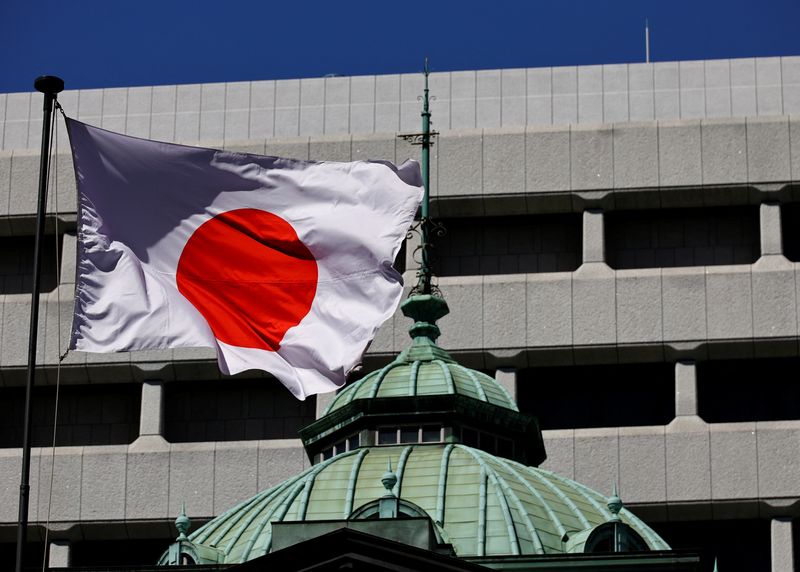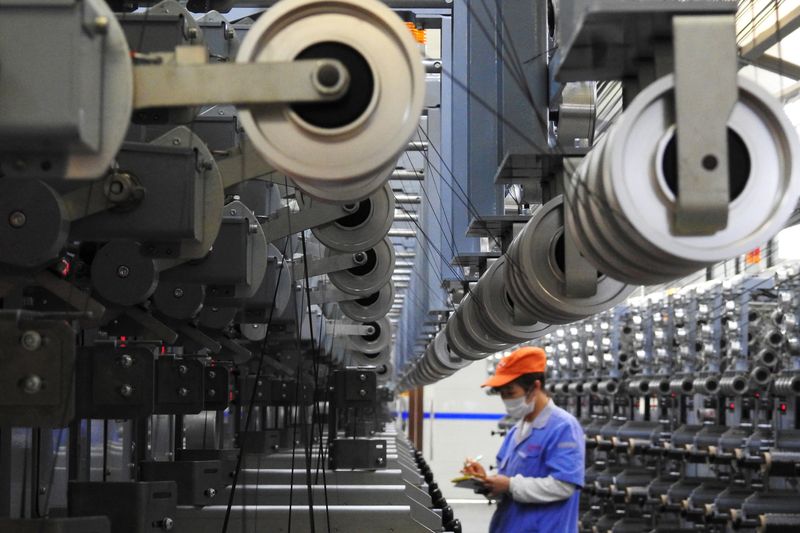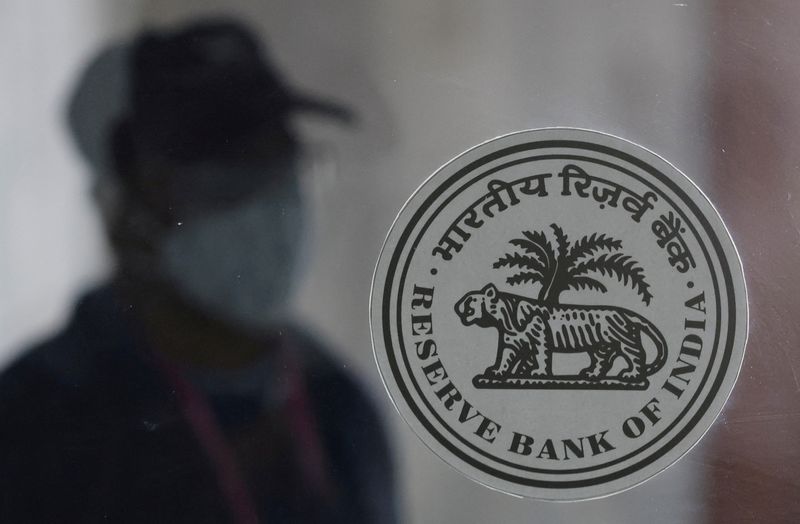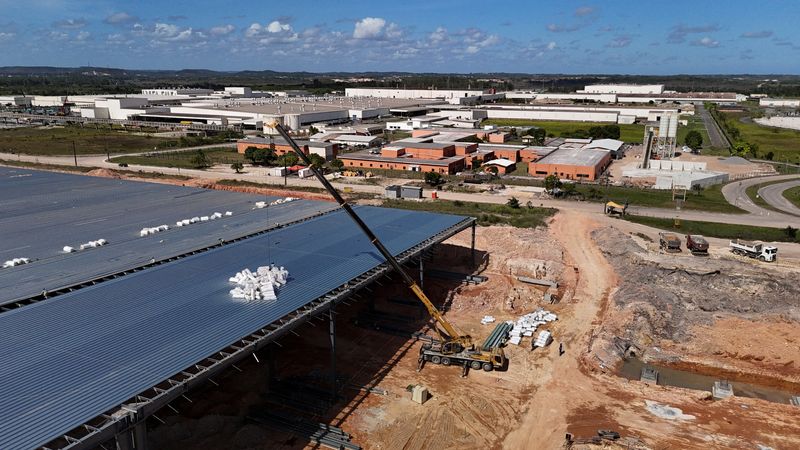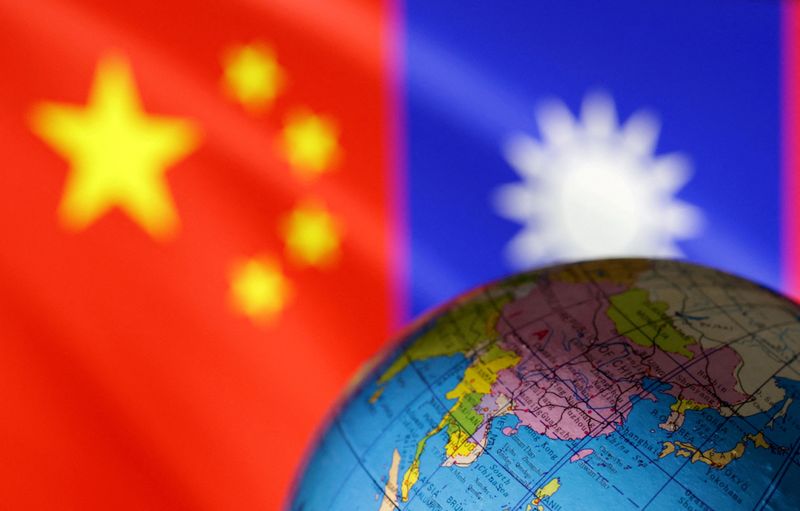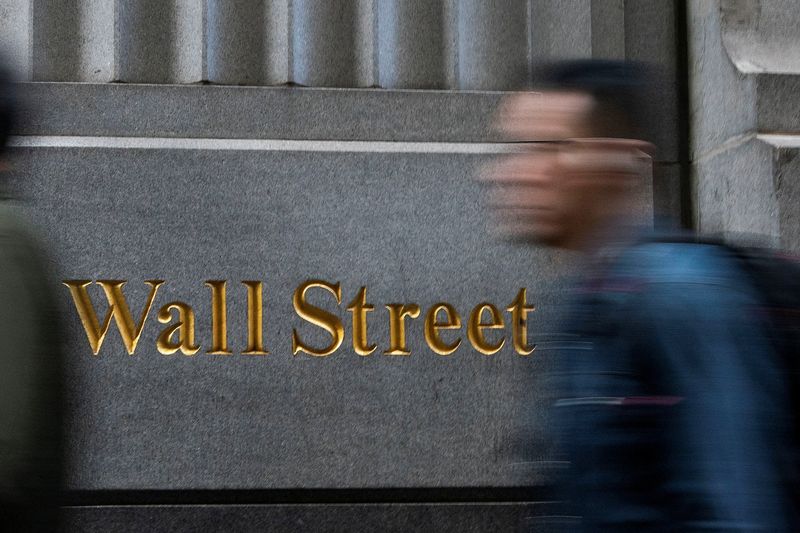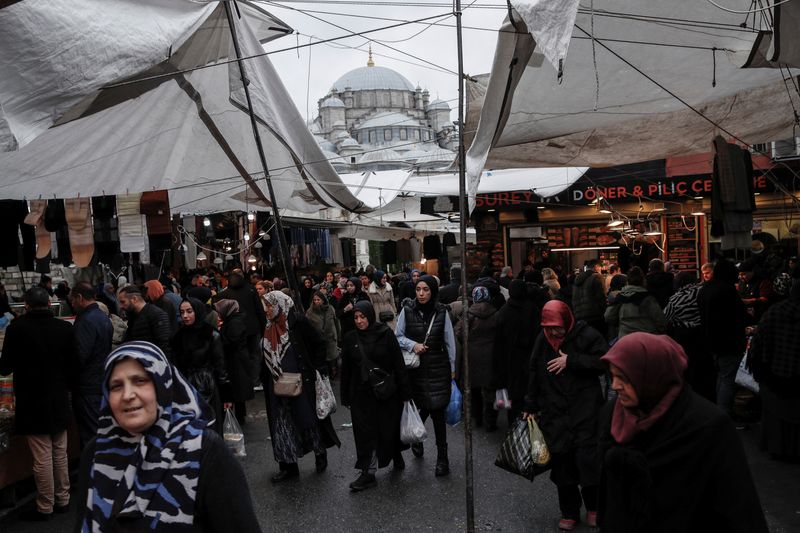By Deborah Mary Sophia and Casey Hall
(Reuters) -Alibaba Group Holding missed analysts’ estimates for second-quarter sales on Friday, as persistent economic uncertainty sapped consumer spending in China and weighed on the e-commerce group’s domestic business.
The company reported an adjusted profit of 15.06 yuan per American Depository Share, beating estimates of 14.88 yuan.
Its U.S.-listed shares were down 0.3% at the opening.
Chinese consumers have cut back on spending, especially on discretionary items, as the world’s second largest economy struggles to pick up pace amid a property sector crisis and heightened youth job insecurity.
That has knocked retail sales, which are under pressure even as major vendors like Alibaba (NYSE:BABA) and JD (NASDAQ:JD).com dole out promotions and discounts. JD.com on Thursday also missed estimates for quarterly revenue.
“Traditionally Alibaba is very dominant in apparel sportswear and cosmetics and skincare, all of these are highly discretionary in nature I do think that these categories are impacted,” said M Science analyst Vinci (EPA:SGEF) Zhang.
Alibaba is facing stiff competition from discount-based retailers such as PDD Holdings’ Pinduoduo (NASDAQ:PDD) and ByteDance-owned Douyin, which have wooed cost-conscious shoppers with rock-bottom prices on everything from headphones to sweaters.
Alibaba reported revenue of 236.50 billion yuan ($32.72 billion) for the second quarter ended Sept. 30, compared with analysts’ average estimate of 240.17 billion yuan, according to data compiled by LSEG.
Revenue from Alibaba’s Cloud Intelligence division jumped 7% to 29.61 billion yuan, with revenues from public cloud products growing in double digits and AI-related product revenue delivering triple-digit growth.
“This Gen AI opportunity is the kind of opportunity that only comes along every 20 years,” Chief Executive Officer Eddie Wu said, highlighting Alibaba’s extensive investments in the space.
Another bright spot was the growth in Alibaba’s international e-commerce business, where revenue rose 29% to 31.67 billion yuan, thanks to growing demand around the world for lower-priced goods from China.
Alibaba has focused on improving the user experience on its Taobao and Tmall Chinese e-commerce platforms and has been investing in its 88VIP loyalty program, which offers special promotions to its 46 million members.
In the past few months Alibaba’s platforms have also begun allowing users to pay with rival Tencent’s WeChat Pay, a move executives told analysts in a post-earnings call would help reach new customers.
Zhang said a majority of the revenue growth seen in the quarter was driven by a “much better than expected take-rate, so it has nothing to do with actual business growth.”
The higher take-rate on domestic platforms implied a “much more tepid growth” in gross merchandise volume (GMV), a commonly used e-commerce metric for measuring sales, Zhang added.
Take-rate refers to fees online marketplaces charge vendors for selling on their platform.
“While e-commerce competition remains intense, we will continue to invest in core user groups and product categories, increase investment in new users, and improve user retention … (to) drive the sustainable growth of our platform,” Wu said.
China’s Singles’ Day sales period, a nationwide sales promotion event typically seen as a gauge of consumer sentiment, ran from Oct. 14 to Nov. 11 this year, 10 days longer than last year. That resulted in a 26.6% rise in sales across all major e-commerce platforms, according to data provider Syntun.
Alibaba did not release total sales revenue for the period but said 45 brands – including Apple (NASDAQ:AAPL), Haier, Midea, and Xiaomi (OTC:XIACF) – each surpassed 1 billion yuan in GMV.
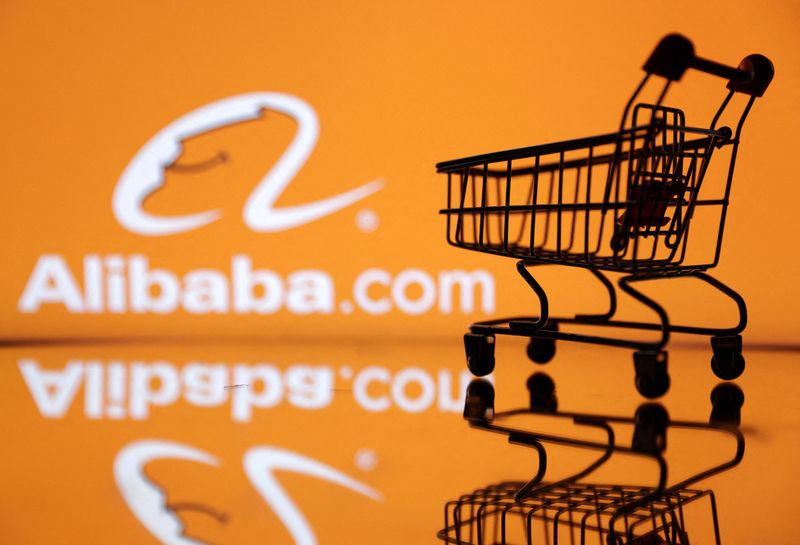
In August, China’s market regulator issued a statement saying Alibaba had completed three years “rectification” following a record $2.75 billion fine levied in 2021 for monopolistic behaviour, drawing a line under the company’s regulatory troubles.
($1 = 7.2275 Chinese yuan renminbi)

